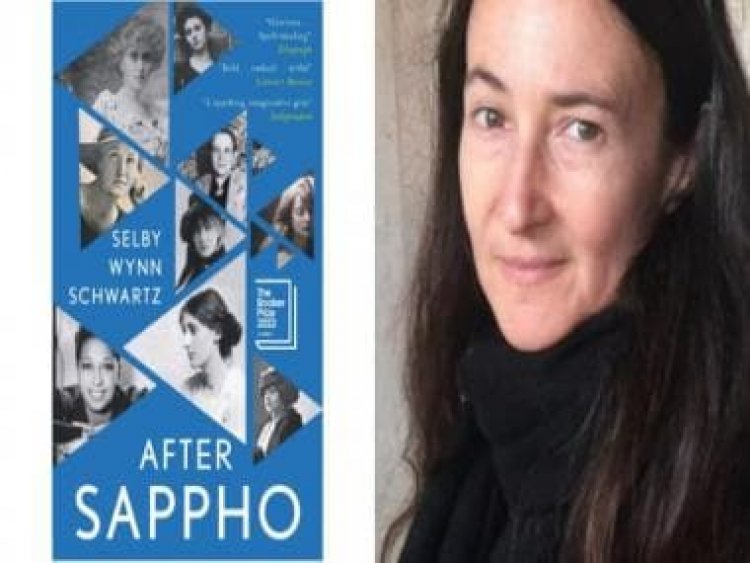Book Review: After Sappho is a feminist novel for literary nerds
Book Review: After Sappho is a feminist novel for literary nerds

Writers, artists, and filmmakers have a tendency to imitate their teachers. If imitation is not a game they’re interested in, then they’ll find a way to pay homage to their creative ancestors (or ancestresses). In the case of After Sappho, which was longlisted for the Booker Prize earlier this year, author Selby Wynn Schwartz goes with the latter. Her debut novel is inventive and elegiac at the same time. She opens a wide door to the twentieth-century queer women who dared to think, write, and act according to their own will.
Wynn Schwartz’s narrative takes an unorthodox road that bypasses the architecture of a typical novel by employing the collective voice “we”. Moreover, After Sappho is presented in fragments where the major characters come together in order to become a community.
In the bibliographic note that runs for nearly twenty pages, Wynn Schwartz writes, “Men like Gabriele d’Annunzio – who swaggers prepotently through every account ever written of Eleonora Duse and Romaine Brooks – do not merit here even a footnote about who they married or how they died. It has been surprisingly easy to leave out these sorts of men: a simple swift cut, and history is sutured without them. I think of Vita Sackville-West, who said in a letter in 1919 that the only revenge one could take on certain men was to brazenly rewrite them.”
Hence, in After Sappho, the men are mostly absent. But their shadows are ever-present like stagnant clouds in the sky. And since the protagonists are mostly European women, some names may appear new to your lenses. One of the pleasures of reading this novel was discovering the words – and works – of women I had absolutely no idea about. I found, for example, the Italian poet Lina Poletti to be interesting. I went down a rabbit hole later and emerged a shade wiser, even if I say so myself.
And I liked how Virginia Woolf and Gertrude Stein, two of the most popular writers of the last century, shared the same pages and dreams as Sibilla Aleramo and Natalie Barney. What binds all these women is the idea of a haven in more ways than one. Whether it’s friendship or a romantic relationship, there’s pleasure in being able to share meals and conversations. Perhaps, Wynn Schwartz is saying that alternative history is just as fascinating as history. From the plaintive columns of history, we can gather the strewn pieces of evidence, whereas, from the imagined gardens, one can certainly pick several fruits.
Allen Ginsberg, in many of his poems, mentions his friends (who’re also writers) and influencers, and candidly talks about his admiration for them. In the poem A Supermarket in California, Ginsberg ropes in Walt Whitman and Federico García Lorca. When you go through these literary masterpieces and unravel their hidden meanings, it becomes clear that the very act of writing a piece – be it in prose or verse – is a tender response to something that has already been created.
The women of After Sappho aren’t just some of the best people in the writing business; they’re also trailblazers. Here’s a short paragraph on Poletti, “Lina Poletti fought to sit in a chair at the library. She fought to smoke in the Caffè Roma- Risorgimento. She fought to frequent literary gatherings in the evenings. She did up her cravat with determined fingers and presented herself in public, over and over, to murmurs in Piazza Vittorio Emanuele II.”
But I must say that although the novel is excellent, it sometimes comes across as a standard textbook for apprehensive readers. The prose, in some places, seems dry, as the lines keep going around in circles as if to say this happened, this happened, this happened, and finally, this happened. The bridge between the flowery language and its prosaic offshoot could have been shortened. Ruth Ozeki’s The Book of Form and Emptiness is another slow-burner that handles a thick subject matter, but every individual sentence is crafted with care there.
After Sappho may inspire up-and-coming writers to look back and bring back the dead visionaries to give them new lives. Who knows, maybe Sylvia Plath and Jane Austen will sit down for lunch in the future and discuss the significance of memories in Yōko Ogawa’s fictional universe. The world, as it is, however, needs more writers who look back, around, and within.
Karthik Keramalu is a writer. His works have been published in The Bombay Review, The Quint, Deccan Herald and Film Companion, among others.
Read all the Latest News, Trending News, Cricket News, Bollywood News, India News and Entertainment News here. Follow us on Facebook, Twitter and Instagram.
What's Your Reaction?



























































